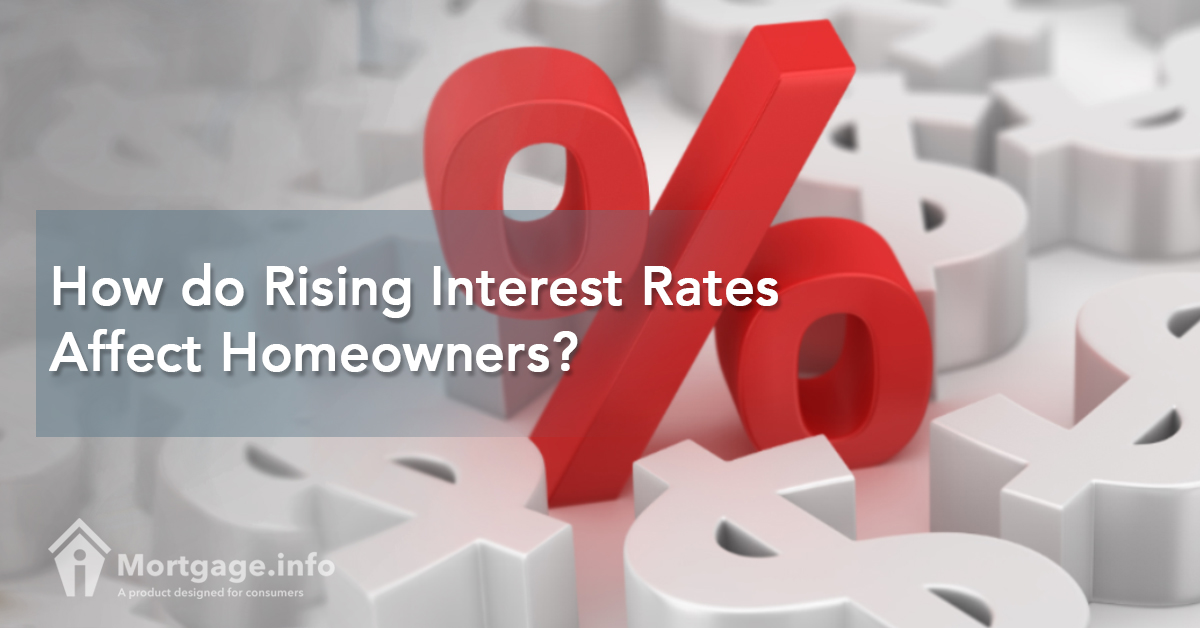The thought of rising interest rates often scares people into making rash financial decisions. This is not always a bad thing. A scare can help you get your finances in order. Overall, however, the threat of higher interest rates doesn’t have as large of an impact on homeowners as you might think. Here are some things to consider to help you make the right choice.
Rising Interest Rates Make Refinancing Tougher
If you hear about the threat of rising interest rates and have considered refinancing, do it now. If you wait, you could cost yourself a lot of money. Even just a half of a percentage rate can cost you $15,000 to $20,000 over a 30-year term. Before you rush into the refinance, though, think it through. Consider the reasons you want to refinance first:
- Do you need cash out of your equity?
- Do you want to lower your interest rate?
- Do you want to change your loan term?
Taking cash out of your equity or lowering your interest rate are usually good reasons to refinance. Before rates increase, you can tap into your equity and pay less interest. If you have a high-interest rate now, taking advantage of the current low rates can help. If, however, you want to lower your loan term, you don’t have to refinance. If you are happy with your current interest rate, just make extra payments. This way you are in control of the amount you pay. If you have a period where you cannot pay extra, you are not penalized for not making the minimum payment. You can make extra payments yearly, monthly, or even sporadically. Even just one extra mortgage payment a year can knock several years off the term of your loan.
The Fed Increase Makes Home Equity Loans More Expensive
If you have a home equity loan, your rate will change as a result of rising interest rates. Your HELOC is likely tied to the Prime Rate. This rate increases with the Fed’s rate. This means your payment will likely increase with every rate increase.
If you wish to refinance, consider what type of loan you need. If you opt for a first mortgage with a fixed rate, you may not be affected by the increased interest rates. As long as you refinance before rates increase, you can save money. Even if you refinance after rates increase, a fixed rate loan is usually the better option. HELOC rates adjust along with the Fed’s rate. This means you could have a payment that increases periodically throughout the life of the loan. If you prefer a more stable loan payment, a first loan is the better option. In fact, not as many banks offer HELOC programs any longer because of the risk involved.
Rate Increases Affect ARM
If you have an adjustable rate loan, the rate increase could affect your rate down the road. You will not see an immediate effect as your ARM has predetermined dates when the rate adjusts. This means if the Fed adjusted rates in December and your next adjustment date is in June, you will not be affected until that point. If the rates stay higher in June, though, your rate could be affected on your rate change date. This could make your payment higher and harder to afford.
Higher Rates Makes Selling Tougher
If selling your home is on your radar, you could have a tougher time with rising interest rates. Higher rates mean a higher loan payment for borrowers. This translates into smaller borrowing power. People who could once afford a $200,000 loan might need to take a smaller loan amount in order to make the payment fit their budget and the lender’s debt ratio guidelines. This means one of three things for homeowners:
- You have to settle for a lower selling price in order to sell your home
- Keep your house on the market longer
- You have to wait to sell your home
What you decide depends on your circumstances. If you have to sell your home quickly, you will likely have to settle for a lower selling price. Chances are you will not have a bidding war on your home, helping you to come out ahead. Instead, you will have low-balled offers that will convince you to sell your home for less than you originally desired.
If you are not in a hurry, you can keep your home on the market longer. This can help you to ride out the interest rate increases and see what happens with the market. Even if rates don’t decrease, chances are there will be a borrower that comes along who can afford the higher rates. You may even find someone who pays cash outright for the home. Either way, the longer you wait, the higher your chances of selling your home for the price you desire.
In some cases, sellers take their home off the market altogether. They decide it is not worth the stress of showing their home and getting into bidding wars where they lose out. Instead, they wait until the market settles and they have a larger audience who can afford the price they ask for the home.
Overall, homeowners are directly affected by rising interest rates. The homeowners who do not see a difference are those who do not want to move and who have a fixed rate mortgage. Everyone else who has any type of adjustable rate loan or wants to put his or her home on the market sees an effect.

